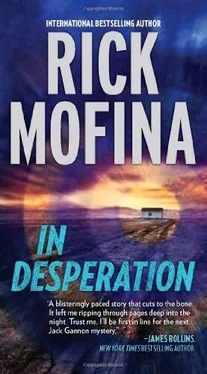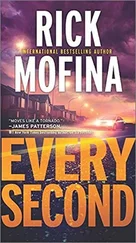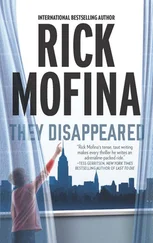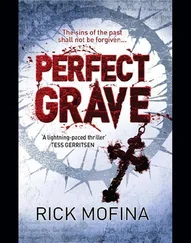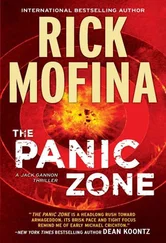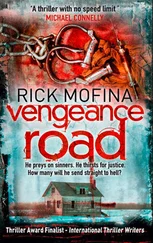The narcos had been tipped that police were coming and the aid worker, a red-haired medical student from Ohio named Betsy, and three Colombian cops, died in the firefight. Later, while recovering in hospital, Hackett learned that one of the cops had been on the traffickers’ payroll, a betrayal that, like his bullet wound, had scarred him.
That was ten years ago and since then Hackett had watched helplessly as the drug lords, with the increasing power of Mexican cartels, extended their reach deeper into the U.S. Corruption greased the drug trade, a fact evinced by the latest memo concerning cartel infiltration of U.S. police ranks. Intelligence showed that cartels were suspected of having “operatives” applying for and getting jobs within U.S. law enforcement. This threw a cloud of mistrust over joint-forces operations, underscoring that you never knew who was on your side. It was an affront to Hackett, who abided by the Bureau’s motto: Fidelity, Bravery and Integrity. These factors weighed on him as they came to Mesa Mirage.
Larson had finished taking notes over the phone.
“No complaint history on the caller’s address. The mother has no criminal history, a spotless driving record. No registered firearms. She’s unmarried and no custody issues-the same for Lyle Galviera. He resides near Tempe and is president of Quick Draw Courier. No arrests, warrants or convictions. He does not possess any firearms. His company is clean.”
“And we’ve got people moving on his company and his home?”
“Yes, based on the statements the kidnapped girl’s mother gave to the sheriff’s deputies we’ve set things in motion to expedite search warrants on Galviera. And we’ve got our Evidence Response Team rolling to the mother’s house to process it as soon as possible.”
“I’m concerned about the time that’s passed since it happened. How many people have walked through that house, contaminating our scene,” Hackett said.
“I figure we’ll want to get the place processed quickly and get a task force set up in the house,” Larson said.
“You figured right.”
Hackett considered Larson a solid young agent. Three years out of Quantico, she’d grown up in Pennsylvania, the daughter of a Pittsburgh cop. She was quiet but sharp, and one of the few agents who could stand working with the walking slab of embitterment known as Earl Hackett.
They neared Cora Martin’s street and recognized a number of unmarked county and Phoenix PD units. As the FBI had requested, they were keeping a low profile but positioned to immediately choke all traffic in the neighborhood.
Hackett stopped their sedan at Cora Martin’s house. A man answered the door. The two agents held up ID.
“Special Agents Earl Hackett and Bonnie Larson. FBI,” Hackett said.
“Jack Gannon.” He swung the door open. “My sister’s over here.”
He indicated the woman sitting on the couch, twisting a tissue in her fists. Her hair was messed and her eyes reddened. After the agents introduced themselves, Hackett said: “Cora, a lot of people are going to work full tilt to get Tilly home safely but we’re going to need your help.”
“Anything.”
After assessing the house and making calls for support, Hackett and Larson talked further with Cora.
“Will you volunteer your property to be processed by our Evidence Response Team, who will look for anything to aid us?”
“Yes.”
“Good. While they do that, would you and your brother come to the Bureau with us now to help us with a few questions?”
“Leave? No. I don’t want to leave-the kidnappers could call.”
“We’ll put an agent here and we can arrange to have any calls that come to your landline go directly to a dedicated line at the Bureau where you can answer. We will not miss a call.”
Upon returning to FBI headquarters, a redbrick and glass building at Indianola Avenue and Second, the agents took Cora alone to a separate meeting room, leaving Gannon to wait in a reception area.
“Would you like something to drink?” Larson asked Cora.
She declined.
“All right, tell us what happened,” Hackett said.
Cora recounted everything. Hackett grilled her, often coming back to the same questions several times. What did she remember about the men? Had she ever seen them before? Height, build, scars, tattoos, accents? What did they touch? Did she still have the duct tape they’d used to bind her? Did she get a look at the car, a plate? The model, make? Prior to the kidnapping had there been any strange incidents? Did Tilly report anything odd at school, like strangers watching her, approaching her?
What did she know about Lyle Galviera? Did the five-million-dollar demand mean anything to Cora or the business? Was he a drug dealer, a drug user, a gambler, a big spender? Did he have debts? What kind of businessman was he?
“Let’s go over this again.” Hackett read his notes. “The kidnappers told you that Lyle uses his company to distribute their product, launder money and that he’s stolen five million dollars from them. Do you know which group or gang this is linked to?”
“No. I wish I did but I don’t.”
“More than twelve hours went by before you called police,” Hackett said. “I need you to explain the delay to me again.”
“I told you, they said that if I went to the police they would kill Tilly. I told absolutely no one. I did all I could to try to find Lyle. I don’t know where he is. When nothing worked, the only person I told is my brother, Jack. I begged him to help me and he told me to call the police.”
Hackett let a few moments pass in silence before he and Larson left Cora alone in the room.
The agents sent for Gannon, leading him to a separate room where Hackett sipped coffee from an FBI mug and flipped through his notes.
“And what’s your line of work, Jack?”
“I’m a correspondent with the World Press Alliance.”
“You’re a reporter with the newswire service?”
“Yes.”
“And you were in Mexico when she called you?”
“Yes.”
“Where in Mexico?”
“Juarez.”
“Really?”
“Yes.”
“And what were you doing there when she contacted you?”
“I was working on the WPA’s series on the drug trade.”
Hackett and Larson exchanged a look of unease.
“Is that right?” Hackett asked. “Yes.”
“Who did you talk to down there? What were you doing?”
“I talked to other journalists, morgue officials. It’s all in the profile that I wrote. The WPA will put out a day-of-death feature.”
“A ‘day-of-death’ feature?”
“Yes, it’ll likely run in tomorrow’s Arizona Republic, and about two thousand other papers around the world.”
“I’ll have to read it,” Hackett said. “Is it possible there’s a link to your activities in Mexico and what’s happened to your niece? Like maybe you pissed somebody off? Cartels have been known to go after journalists.”
“I know, but I doubt it,” Gannon said.
“Why?”
“I’ve only been there a few days and my sister said that the people who took my niece asked for Lyle Galviera, said he owed them five million dollars. Until today, I’d never heard of the guy.”
“Would you say you and your sister are close? Keep in touch regularly?”
“No. She ran away from home when she was seventeen and I was twelve. I never saw her again, until today.”
“So it’s fair to say you don’t really know your sister that well?”
“It’s been difficult, yes.”
“And here you are, directly from Juarez, Mexico?”
“That’s right. Here I am.”
Hackett stared at him for several long seconds before he and Larson met with other people in the Bureau and made a few calls. Then they led Gannon to the room where Cora had been waiting and questioned them together.
Читать дальше
